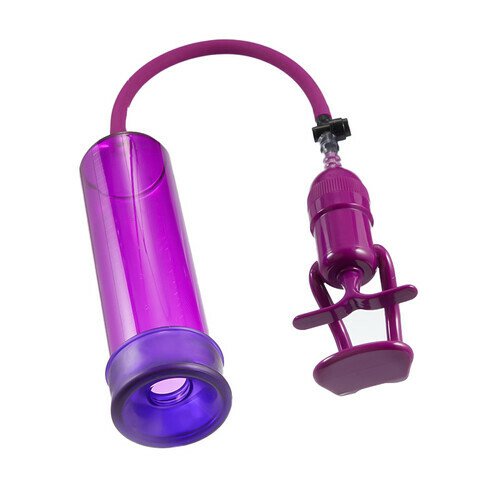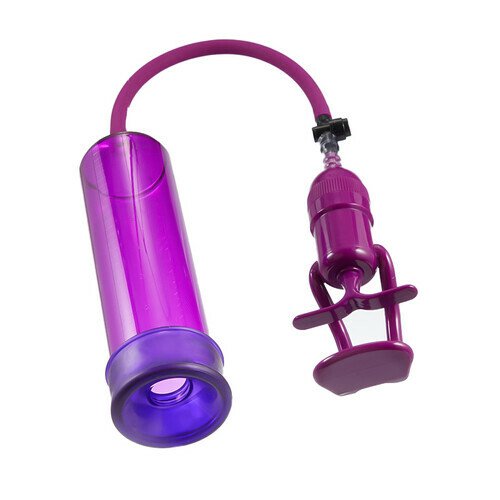Donald Trump is a joke for many. His time in the public, whether in business, reality TV or politics, is a ridiculous and frustrating sight for many, but for those who grew up with narcissism or abuse of their parents, his Behavior can not only be aggravated, it can be triggered deeply. His methods of discourse, mannerisms and motivation reflect the strategies used by the narcissist, making his presence in the media and politics painfully reminds of past trauma.
It took me a while to personally recognize the reason why I felt urgency and anger when facing that fucking guy in any capacity. His voice, his face, his posture, how he moves and speaks, all of which put me into low-level combat or flight mode. I could feel the boiling reaction in my body. Tension and adrenaline, fatigue and anger. Frankly, Trump flooded me, although the obvious reason was that it took me some time to realize how I felt because I was deeply triggered.
The old habit is dead
I grew up with an angry, emotionally immature father and a cold, dismissive, narcissistic stepmother. It is an understatement to say that my needs as a sensitive child are ignored, and I am often silent by fear and anxiety, and the threat of explosive anger is always around the corner. Trump’s energy and competitors encapsulate their personality in an unsettling way, to say the least, and encounter regularly. Recently, when Trump said in an interview that the United States planned to “take Gaza”, I set out in particular. When the reporter asked him what authorization he did this, he shrugged and said “the authority of the United States.” It seems that it is a rational and complete answer. This level of unilateral control and unwelcome reaction was like my childhood. “Because I say that.” and “Because I can.” I heard a lot when I grew up. Unfortunately, my nervous system has only one response to this threat, which is not ideal.
Characteristics of narcissistic abusers
Identifying narcissistic traits in abusers like Trump can help you identify toxic patterns and protect yourself from further manipulation. Fortunately, narcissistic abusers exhibit incredibly predictable behaviors that revolve around control, superiority, and emotional exploitation, making it easy to identify once they know what to look for. Recognizing these traits is the first step to protecting yourself from narcissistic abuse and setting boundaries of health.
Here are some key signs:
They eliminate or minimize your feelings and make everything about yourself.
They distort reality, deny what they say or do, and make you question your memory or perception.
- Constantly admire
If they don’t get enough praise, they are eager to verify and get angry or withdraw.
- Manipulation and control
They use introspective, shame or passive attacks to get what they want.
They never take responsibility for their actions and always make others scapegoats.
- Extreme sensitivity to criticism
Even mild feedback is full of anger, defense or victim.
They consider them superior to others and often exaggerate their achievements or abilities.
But it’s not just narcissism
If Trump is a nightmare only Narcissist, but he is return A great madman.
Narcissism and big arrogance are strongly correlated, because both involve self-importance, desire for admiration and a sense of total lack of empathy. Narcissism ranges from mild traits to mature narcissistic personality disorder (NPD), and orgy is an extreme form of fanaticism that is often associated with power and invincible delusions.
Many large fanatics exhibit narcissistic behaviors such as manipulation, gas lighting and inability to accept criticism. But the big fanatics go further, driving individuals to seek absolute control, both in politics, business and relationships. Both traits are derived from deep insecurity, masking vulnerability with arrogance, dominance and obsessive need for verification.
Donald Trump has long demonstrated these behaviors on the public stage. He lied easily, distorted reality, refused to admit his mistakes, and lashed out at anyone who criticized him. His need for constant praise and intolerance of dissent is a classic sign of narcissistic personality disorder. For those who survived the upbringing experiences full of these traits, it would feel very familiar and incredibly disturbing to watch him. If how he shows himself will put pressure on you, then you are not alone!
Air lamps and twisted reality
One of the most painful strategies for narcissistic abuse is Qi Guang, which is described as “manipulating someone to question their own reality.” Survivors of our narcissistic parents are all very familiar with phrases such as “never happened” or “you are too sensitive” that were once used to remove experience and make us doubt ourselves.
Trump often denies this abuse strategy of objective reality. Whether it is a legal news report “fake news”, insisting that he won his lost election or contradicting his statement with complete and incredible “confidence”, he uses a view that makes people question themselves The way distorts reality. For survivors, this could be a profound trigger, reinvigorating painful memories of being fired and manipulated.
Bullying and public humiliation
Abusive narcissists thrive in control, and one of their favorite tools is public humiliation. Whether it’s ridiculing a child in front of siblings or in a social setting, or mocking a spouse in a social setting, the goal is to establish dominance and instill fear.
Trump’s bullying is well documented. He mocked the disabled, assigned cruel nicknames to his enemies, humiliated the appearance of women, and used social media to attack critics. His method of power stems from derogatory degradation that makes others elevate themselves. For survivors of childhood abuse, this public cruelty is not only offensive, but also a painful reminder of what we once felt helpless under the thumb of abusive characters and on every news channel and social media It was on the platform that made him feel inevitable.
Lack of empathy and personal responsibility
One of the most lost aspects of growing up with narcissistic parents is their complete lack of empathy. They did not apologize in a meaningful way, they refused to take responsibility for their actions and blamed the victim for their own pain or mistakes.
Trump’s response to crises and scandals is an example of such textbooks. Whether it is refuting the suffering of families separated at the border, accusing the media of covering up their mistakes, or refusing to admit wrongdoing incorrection, he shows the same indifference as many of our survivors have recognized from childhood. This lack of accountability and empathy can be particularly painful for those who wish to apologize or admit the harm of abuse of parents.
Why do you feel so personal
Many can follow Trump’s antics and keep moving forward. But for survivors of narcissistic abuse, the experience can be very challenging. His actions not only frustrate us, but are a public replay of private pain. Lies, gas, bullying, lack of empathy, it’s too familiar. It reminds us of our manipulation, fear and powerlessness as children. Worst of all, like our abusers, some defend him so that his actions can make the survivor feel unheard and ineffective again.
How to deal with Trump
If Trump’s actions are triggered for you, it’s important to take steps to protect your mental health:
- Limit exposure to political news
- Planning your social media feed
- Engage in basic and meaningful self-care
- Treatment can also be a powerful tool that provides strategies for managing triggers and handling past trauma
Most importantly, remind yourself that you are not alone. Your feelings are effective, your experiences are real, and you don’t have to endure the cycle of narcissistic abuse, whether in your personal life or in the public sphere.
The final thoughts about Trump
For survivors, Donald Trump represents more than a controversial politician: he embodies the tactics and behaviors of people who cause our deep emotional hurt. While his presence in the media and politics may be inevitable, we can have a day to recognize these patterns and restore our sense of reality, power and peace.


 Anal Beads
Anal Beads Anal Vibrators
Anal Vibrators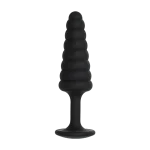 Butt Plugs
Butt Plugs Prostate Massagers
Prostate Massagers
 Alien Dildos
Alien Dildos Realistic Dildos
Realistic Dildos
 Kegel Exercisers & Balls
Kegel Exercisers & Balls Classic Vibrating Eggs
Classic Vibrating Eggs Remote Vibrating Eggs
Remote Vibrating Eggs Vibrating Bullets
Vibrating Bullets
 Bullet Vibrators
Bullet Vibrators Classic Vibrators
Classic Vibrators Clitoral Vibrators
Clitoral Vibrators G-Spot Vibrators
G-Spot Vibrators Massage Wand Vibrators
Massage Wand Vibrators Rabbit Vibrators
Rabbit Vibrators Remote Vibrators
Remote Vibrators
 Pocket Stroker & Pussy Masturbators
Pocket Stroker & Pussy Masturbators Vibrating Masturbators
Vibrating Masturbators
 Cock Rings
Cock Rings Penis Pumps
Penis Pumps
 Wearable Vibrators
Wearable Vibrators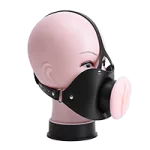 Blindfolds, Masks & Gags
Blindfolds, Masks & Gags Bondage Kits
Bondage Kits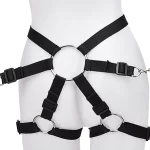 Bondage Wear & Fetish Clothing
Bondage Wear & Fetish Clothing Restraints & Handcuffs
Restraints & Handcuffs Sex Swings
Sex Swings Ticklers, Paddles & Whips
Ticklers, Paddles & Whips














